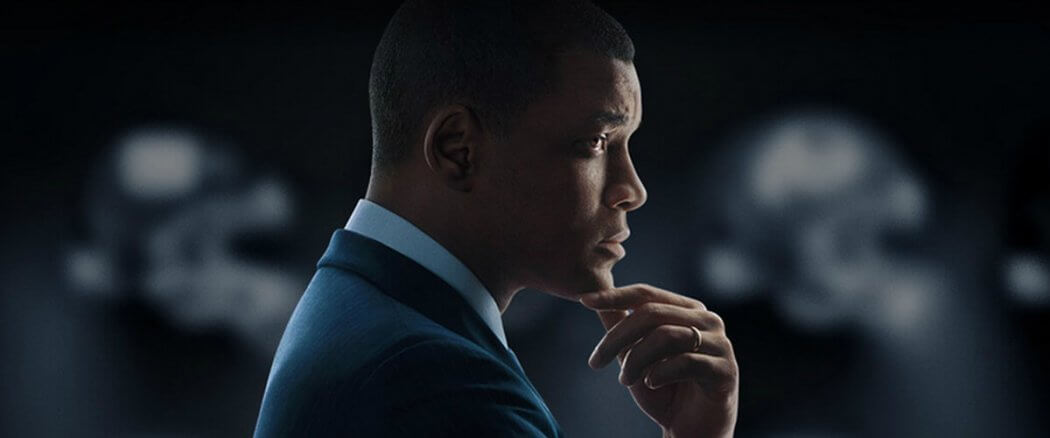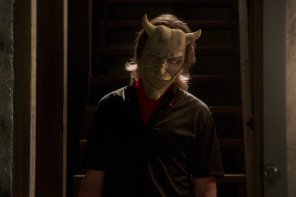As a youth growing up (a long time ago), I never played football for two reasons. First, I was reared in Indiana where football was relegated to a minor sport far behind basketball — in fact my high school didn’t even have a football team at that time. Secondly, I was incredibly untalented when it came to sports. When I first went to Purdue University as an undergrad, I knew only the basics of “American” football. But as time went on I grew to be a fan of both the college and, eventually, the professional game (unfortunately choosing the hapless Detroit Lions to root for, leading to a lifetime of frustration.)
In my professional life, as was common for a “country doctor,” I volunteered to be the “team doc” for the local high school football team in the small Michigan village where my family was located. That is where I began to see close-up both the positive aspects of football (at times a sport of skill, beauty and grace; one where most players toiled without much glory for “the good of the team”) and the dark side of youth suffering physical harm as a result of their participation; of a culture of macho bravado utilized to motivate these impressionable young men.
I stood near the huddles and on the sidelines where young injured men were encouraged to go back out on the field as a badge of their manliness. I saw how little credence was given to medical personnel and their opinions (my opinions, in many cases) when the game was on the line, even if the game was ultimately meaningless. I realized my function as a physician was seen by the coaching staff as someone to patch these boys up so they could return to the game as well as to cover any liability for a catastrophic injury. If someone was sent to my office during the week by the coaching staff, their question was not “Is it safe for him to begin to participate?” but rather “How soon can you tape him up so he can be back on the field?” Concussions? If he could count to four and stand up, the concussions were “minor” and would get better after the season.
The emphasis was always on getting the athlete playing again and not on what was best for the youth involved. While rules have changed for the better during my career, this is the real mantra of competitive sports, at least by the time a competitor enters high school and beyond — play for your team, don’t let your buddies down, in the end winning is the only value of importance.
Autopsies and the Stories They Tell
In Concussion we see a portrayal of the story of Dr. Bennet Omalu, a Nigerian born physician who is so intelligent that he graduated from medical school at the age of 16. Based in large part on the GQ article Game Brain and the book Concussion that followed, the movie opens with scenes of a rambling induction speech of former University of Wisconsin and Pittsburgh Steeler center Mike Webster (an almost unrecognizable David Morse) into the NFL Hall of Fame in 1997. Five years later we see an obviously debilitated, suffering and unhealthy Webster living in a pickup truck and struggling to function. He has superglued his rotting teeth into their sockets and repeatedly zaps himself with a taser to cover up his chronic pain and knock himself out so to sleep.
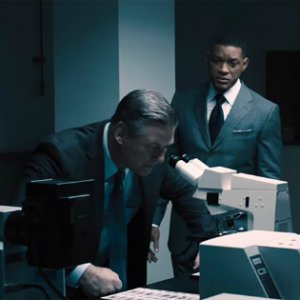 In 2002 Webster dies in a Pittsburgh hospital of alleged heart disease and the “Steeler Nation” is shocked. He is taken to the coroner’s office where the physician on-call is Dr. Omalu. He has almost no knowledge of American football or who Mike Webster is (much to the incredulity of his fellow workers). While it is happenstance that he is on-call for the autopsy, it may have been God’s plan because, in addition to being a forensic pathologist, he was also a neuropathologist (having received specialty training in diseases of the nervous system). Omalu sees immediately that Mr. Webster’s body is ravaged far beyond what one would expect of a 50-year-old athlete. Reading from the report accompanying his body of his Alzheimer’s-type symptoms but seeing no evidence of that disease, Dr. Omalu takes it as a personal challenge to find the cause of “Iron Mike’s” physical and mental deterioration.
In 2002 Webster dies in a Pittsburgh hospital of alleged heart disease and the “Steeler Nation” is shocked. He is taken to the coroner’s office where the physician on-call is Dr. Omalu. He has almost no knowledge of American football or who Mike Webster is (much to the incredulity of his fellow workers). While it is happenstance that he is on-call for the autopsy, it may have been God’s plan because, in addition to being a forensic pathologist, he was also a neuropathologist (having received specialty training in diseases of the nervous system). Omalu sees immediately that Mr. Webster’s body is ravaged far beyond what one would expect of a 50-year-old athlete. Reading from the report accompanying his body of his Alzheimer’s-type symptoms but seeing no evidence of that disease, Dr. Omalu takes it as a personal challenge to find the cause of “Iron Mike’s” physical and mental deterioration.
Paying for many of the additional studies he requested out of his own pocket (due to the financial constraints of the coroner’s office) and spending countless hours off-the-clock to unlock the underlying illness, Dr. Omalu eventually discovers that Mike’s brain has been laid waste by a degenerative brain disease found to relate to a history of repeated mechanical brain trauma, both symptomatic (being “knocked out”) and head injury without symptoms (http://www.bu.edu/cte/about/what-is-cte/). Previously only described in boxers, Dr. Omalu, proudly described the syndrome, which he names Chronic Traumatic Encephalopathy (CTE), in a paper published in the scientific journal “Neuroscience.” Quickly thereafter he published a second paper in the same journal after he examined former NFL player Terry Long, who had a similar behavioral history to Webster’s and whose brain exhibited the identical changes of CTE. Expecting that America in general, and the NFL in particular, would celebrate such knowledge, he is instead dismayed by the resistance — no, the vociferous hostility — of much of the medical community and, especially, the physicians the NFL gathers to denigrate his findings. He does eventually link with a former team physician for the Steelers, Dr. Julian Bales (Alec Baldwin) who unenthusiastically admits the veracity of Dr. Omalu’s findings.
A Scientist’s Faith
But the movie is more than a medical detective story. It clearly shows Omalu’s faith as central to his life, being a devout Roman Catholic who meets his future wife at his church. He sees faith and science as “going together” saying “Science seeks the truth. Faith seeks the truth. So there is a commonality between science and faith.” (See this interview). We see him in church, in quick prayers and with his Bible on his bedside table (shocking, as most films edit any faith references out of the story — see Bridge of Spies). We also see his faith in his tender treatment of his girlfriend and soon-to-become spouse, Prema (Gugu Mbatha-Raw of Belle and Jupiter Ascending). And most touching to me as a physician, we see him quietly talking to each of the dead bodies he is about to cut open from head to groin during his autopsies, asking them to help him discover the cause of their death (“I’m a spiritual person. I’m a Catholic. I treat my patients, the dead patients, as live patients. I believe there’s life after death. And I talk to my patients. I talk to them, not loudly, but quietly in my heart when I look at them.” – PBS).
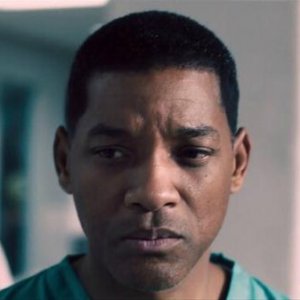 Despite his faith, or perhaps because of the truthfulness it demands, Omalu becomes the victim of character assassination with accusations of his being ignorant and demands that he actually retract his papers (something almost unheard of in medicine unless there is actual fraud or plagiarism involved). He realizes that some of the criticism is based in racism (who is this African “doctor” who thinks he knows more about America’s sport than we do?). His confusion as to why his findings are met with such mindless denial and the threats he endures, including threats on his life, makes his resilience especially admirable. (“I was naive,” Omalu admits. “There are times I wish I never looked at Mike Webster’s brain. It has dragged me into worldly affairs I do not want to be associated with. Human meanness, wickedness, and selfishness. People trying to cover up, to control how information is released. I started this not knowing I was walking into a minefield. That is my only regret.” – GQ) And as Will Smith’s character answers in the movie when asked why he thought the NFL would thank him… “For knowing.”
Despite his faith, or perhaps because of the truthfulness it demands, Omalu becomes the victim of character assassination with accusations of his being ignorant and demands that he actually retract his papers (something almost unheard of in medicine unless there is actual fraud or plagiarism involved). He realizes that some of the criticism is based in racism (who is this African “doctor” who thinks he knows more about America’s sport than we do?). His confusion as to why his findings are met with such mindless denial and the threats he endures, including threats on his life, makes his resilience especially admirable. (“I was naive,” Omalu admits. “There are times I wish I never looked at Mike Webster’s brain. It has dragged me into worldly affairs I do not want to be associated with. Human meanness, wickedness, and selfishness. People trying to cover up, to control how information is released. I started this not knowing I was walking into a minefield. That is my only regret.” – GQ) And as Will Smith’s character answers in the movie when asked why he thought the NFL would thank him… “For knowing.”
Will Smith portrays the lead. I have heard Dr. Omalu speak on several occasions and Will has obviously studied his Nigerian accent as well as his mannerisms. Dr. Omalu is the proud son of an Africa chief and has eight (8!) advanced degrees. He has a certain regal bearing about him and he insists that people address him as “doctor,” both in real life and again in this movie. Will shows Omalu’s native pride but yet also his humility and sense of humor. I had to keep reminding myself that this was the Will Smith of Bad Boys, Men In Black and, especially, Fresh Prince… so immersed was he in transforming into Dr. Omalu. Certainly this role is one that was ripe for an Oscar nomination, but then, we know that #OscarSoWhite.
I often listen to “Mike and Mike” on ESPN Radio on the mornings as I work on my charts. They interviewed Dr. Omalu in December 2015 after he wrote an opinion piece for the New York Times titled “Don’t Let Kids Play Football” (read here) and knowing this movie was coming out. Before the telephone interview they, as football fanatics, had all kinds of pointed questions they were going to ask Dr. Omalu, but as soon as he got on the line Dr. Omalu (in his best Will Smith voice – grin) kindly, but expertly, dominated the conversation and left them with the lame, “Well, I guess a lot more research needs to be done.” And in that they spoke truth.
Truth to Power
Dr. Omalu really had no idea that he had “poked the bear.” The NFL is, above all, about making money for its owners… 9 billion last year alone, and Commissioner Roger Goodell (Luke Wilson) wants their profit to be 25 billion in 10 years. And I say this as someone who, I am ashamed to say, often becomes annoyed when there is a church function scheduled in the fall during my Lion’s weekly game. As Dr. Cyril Wecht, Omalu’s boss in the coroner’s office (acted winningly by Albert Brooks) tells Dr. Omalu, “The NFL owns a day of the week. The same day the church used to own. Now it’s theirs.”
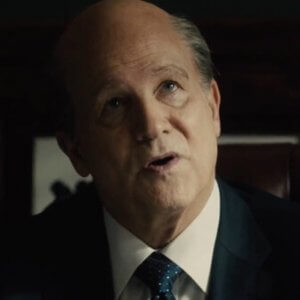 The NFL fought the “knowing” when Mike Webster was trying to get disability, and has continued that fight steadfastly all the way through the release of this movie. The idea that a huge number of its players may eventually suffer from CET is an ominous and unacceptable outcome for them and they are doing, and will do, everything they can to deny that. In 2013 PBS prepared, in partnership with ESPN, a Frontline exposé called League of Denial: The NFL’s Concussion Crisis. Then less than two months before the Frontline episode was to be broadcast, ESPN withdrew and asked PBS to take their name off all materials relating to it (see this note). It is not explicitly stated but widely recognized that ESPN was given an ultimatum by the NFL that ESPN’s NFL programming (worth 2 billion to ESPN yearly) would be jeopardized if they had proceeded. (You can stream the excellent and engrossing documentary, which is much more damning to the NFL than Concussion here for free plus view the follow-up and many other materials having to do with CTE.) The most frightening statistic from this site is that of the 91 former NFL player’s brains made available to be examined at the NFL’s own designated neuron-research center at Boston University, 87 have demonstrated the disease of CTE (96%).
The NFL fought the “knowing” when Mike Webster was trying to get disability, and has continued that fight steadfastly all the way through the release of this movie. The idea that a huge number of its players may eventually suffer from CET is an ominous and unacceptable outcome for them and they are doing, and will do, everything they can to deny that. In 2013 PBS prepared, in partnership with ESPN, a Frontline exposé called League of Denial: The NFL’s Concussion Crisis. Then less than two months before the Frontline episode was to be broadcast, ESPN withdrew and asked PBS to take their name off all materials relating to it (see this note). It is not explicitly stated but widely recognized that ESPN was given an ultimatum by the NFL that ESPN’s NFL programming (worth 2 billion to ESPN yearly) would be jeopardized if they had proceeded. (You can stream the excellent and engrossing documentary, which is much more damning to the NFL than Concussion here for free plus view the follow-up and many other materials having to do with CTE.) The most frightening statistic from this site is that of the 91 former NFL player’s brains made available to be examined at the NFL’s own designated neuron-research center at Boston University, 87 have demonstrated the disease of CTE (96%).
There are stories of the NFL making every attempt to minimize the damage of Concussion’s release (see here). But as I am writing this it has been 3 weeks since the movie’s Christmas Day opening and the impact of the movie seems to be not much more than a small blip on the seismograph of America’s sports/entertainment multi-billion dollar industry, rather than the hoped-for earthquake. And despite good reviews, its audience shares are rapidly fading. Perhaps the movie’s contents make us too uncomfortable about our love affair with “America’s sport.”
Sounds Boring to Me
The movie’s material could be dry or, worse yet, gross — slides of people’s brains? Autopsies? Demented ex-NFL players threatening their family and committing suicide? But for me, the movie was completely engrossing. I knew the basic facts even before going but became so absorbed in the telling of this (mostly) true story whose dominoes continue to fall today. Unlike many movies, this involved issues that involve my family and those I rub shoulders with at work. And it poses questions for me as a Christian.
Concussion did have some problems. There are scenes that just don’t work — Dr. Omalu destroying a drywall in their new home when he realized he would have to move. His wife Prema panicking when she believes someone is following her car and, it would appear as a result, miscarrying her pregnancy. Neither appears to be factual as they are presented and both are overly melodramatic and unnecessary. I can more easily take the character of his coworker and nemesis in the coroner’s office Daniel Sullivan (a good turn by Mike O’Malley), who actually does not exist but was a composite of the Steeler fans that resented his findings. But even young people have told me how inspiring the movie is. And Will Smith is absolutely riveting.
What Does All This Mean?
Football is often called a “gladiator sport.” After seeing this movie, that term makes me squeamish about my passion for the sport. Are we willing to not consider the cost of this country’s adoration of this violent American sport and the profit mongers who run it? Dr. Omalu and his wife felt they were doing God’s work by uncovering CTE. Is this movie a prompt to us from God that we who love football so much have elevated it to idol status?
 Many who see this movie will have children or grandchildren participating in football or other high-risk sports (girl’s soccer ranks second in high school concussion rates, followed by boy’s wrestling.) So what should we take from the movie in that regard?
Many who see this movie will have children or grandchildren participating in football or other high-risk sports (girl’s soccer ranks second in high school concussion rates, followed by boy’s wrestling.) So what should we take from the movie in that regard?
Dr. Omalu feels no one under the age of 18 should participate in sports which invite concussions thereby reserving that decision to take the risk of playing the sport until they are of age to give informed consent as to whether they wish to jeopardize their future well-being or not. Is that what we tell our children or grandchildren? And is an 18-year-old sufficiently mature to make that decision, as opposed to, for instance, enlisting in the armed forces?
And what attitude should Christians have toward the NFL? One reaction is that of Charles Camosy, at ChristianHeadlines.com (here) who writes he may not watch any more football until it “fundamentally changes its relationship to violence.” The word “may” is interesting, and I feel his pain. Because we all know that the NFL is not going to easily change. They will do as little as possible in order to “protect the (NFL) shield” as Commissioner Goodell was fond of saying in the fall of 2014 when dealing with the problem of NFL players battering women. (Despite predictions of women abandoning the sport because of the NFL’s bungling of those episodes, it was more watched and made more money than ever last year — and this fall too.)
Should we ethically support an entertainment where it may be that 96% of those who provide us with our football fix suffer serious harm? Are we like meat eaters who refuse to think about factory farms or the inside of slaughterhouses? Does the Bible’s commandment to protect the weak and poor among us and the Psalms exhortation to let the “words of my mouth and the meditation of my heart be pleasing to you, LORD, my Rock and my Redeemer” apply here? I am praying on that. And I am praying that my grandsons do not play this or any other violent sport, and I count it as a blessing that I am not their parent who must convince them of the correctness of that decision.

